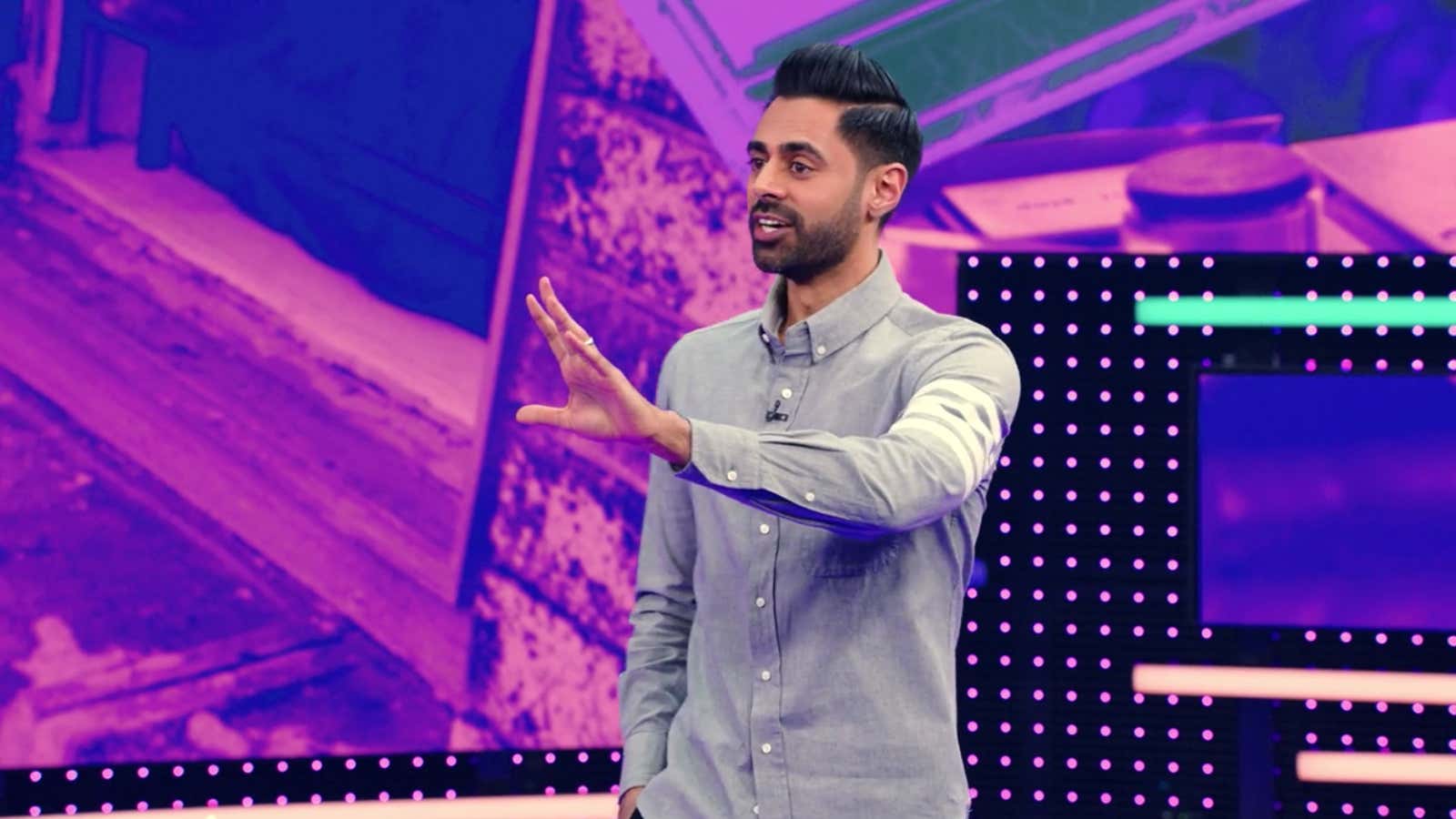In the latest episode of Netflix’s Patriot Act, host Hasan Minhaj breaks down the surprising connection between music streaming, hip hop, and oppressive regimes across the globe:
Before diving in, Minhaj takes aim at the rise of “Soundcloud rappers”—those young artists, many with rainbow-colored grilles and face tattoos, who gained fame via the streaming platform Soundcloud—and explains how streaming has changed the content of hip-hop music, in that artists are incentivized to create short, catchy songs in order to earn more streams and thus more cash.
“Have you guys heard Gucci Gang?” he asks. “Well, if you haven’t I just gave away 90% of the song.”
While it’s true the relatively recent dominance of the Soundcloud mumble-rap genre has changed the nature of hip-hop, the form is also still used as a tool of political dissent, with artists employing it to criticize governments, political figures, and law enforcement. What Minhaj points out is how only recently the rise of streaming platforms—specifically YouTube—has allowed rap and hip-hop to spread to places where it was less prevalent before.
Because of streaming, hip-hop music and videos from the US—where freedom of expression is protected—have spread to places like Russia, China, and Thailand, where oppressive governments reign and media is often censored. For example, a music video from a Thai rap group skewering the Thai government was inspired by Childish Gambino’s This is America, a track that criticized racism and gun violence in the US.
Governments, meanwhile, including those in China and Thailand, have tried to respond with music videos of their own. They have mostly bungled the attempts:
